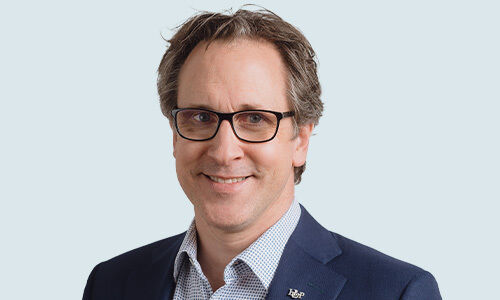Citizenship is the key status that determines one’s position within a hierarchical global system. Those who are born with the «right» citizenship gain access to a package of opportunities, rights, and security that is nearly unimaginable to persons from another nationality, Juerg Steffen explains in an interview with finews.com.
Juerg Steffen, why is the «right» passport so important?
Only about 15 percent of the world’s population holds citizenship from Australia, Canada, Japan, South Korea, an EU country, or the USA. Relative to the remaining 85 percent of humanity, they constitute a global elite in terms of citizenship rights. The gaps between the highly developed, mostly Western countries and (almost all) of «the Rest» are vast.
The economist Branko Milanovic has calculated that the 5 percent of Americans with the lowest incomes still have an average income that is higher than 60 percent of the world’s population – they are in the 60th percentile of the global income distribution.
«For most of the 20th century, this sorting system did not tolerate overlaps»
Meanwhile, the earnings of the lowest-income Danes place them in the 90th percentile of the global distribution of incomes.
In 1990 only about 25 percent of the countries in Europe and the Americas permitted dual nationality, meanwhile rising to 80 percent. Why is that so?
For most of the 20th century, this sorting system did not tolerate overlaps: countries demanded exclusive allegiance from their citizens and typically did not permit multiple citizenships.
Numerous factors, including a boost in international migration and the end of the Cold War, have combined to make dual citizenship legally and normatively acceptable. Today, the acceptance of multiple citizenships has become the norm among developed countries.
«Citizenship is now flexible and fungible»
From the point of view of individuals, the change is dramatic. In the «traditional» system of exclusive national membership, citizenship operated as a strict, rigid status: once assigned (usually at birth), it could be changed only with great difficulty.
Acquiring second citizenship meant giving up the original one. This changes, once it is possible to hold more than one citizenship. Citizenship is now flexible and fungible. In sociological terms, citizenship is changing from being an «ascribed status» – meaning a characteristic that is fixed and imposed from the outside – to an «achieved status», meaning that it can be changed through individual striving.
«It's a striking expression of the pandemic's impact on the human psyche»
The new principle of dual citizenship toleration adds dynamism to the rigid system of citizenship-based global inequality, providing new ways for people to improve their position in the global hierarchy.
Lately, you recommend having access to a suite of alternative options. Why would this make sense?
Domicile diversification is a growing trend. Most investment migration program options include the whole family, and many extend to parents, siblings, and even grandparents. The more jurisdictions a family can access, the more diversified its assets and its opportunities, and the lower its exposure to country-specific risk and global uncertainty will be.
«The global pandemic has put a spotlight on the advantages of optionality»
The remarkable ascent of digital nomadism, a byproduct of Covid-19 that governments are keenly embracing, is a striking expression of the pandemic's impact on the human psyche.
Why is Covid-19 making people feel their citizenship more than ever before?
The global pandemic has put a spotlight on the advantages of optionality, especially when it comes to residence and citizenship. Having felt the limitations of being confined to just one jurisdiction for months on end, many investors and entrepreneurs are realizing the benefits of investing in multiple options.
«The necessity of having not just a Plan B, but also a Plan C and a Plan D for the future is increasingly clear»
Observing their governments’ pandemic responses, with many initially misjudging and mismanaging the situation, and others imposing policy changes in its wake, many investors are feeling the constraints of being confined to their birth countries and are looking for alternative settlement options for the longer term.
While this was the case prior to the pandemic, the necessity of having not just a Plan B, but also a Plan C and a Plan D for the future is increasingly clear.
The industry has seen sustained growth for over a decade. What's next?
Interestingly, the supply side is rising to meet demand, with more and more governments announcing new programs and additional investment migration options with greater frequency than ever before.
This is good news for those affluent families who are looking to hedge their risks and secure alternative business, career, educational, and lifestyle opportunities on a worldwide scale.
Juerg Steffen is the CEO of Henley & Partners. He has over 30 years of experience in the financial services industry. Before joining the firm in 2013 he was a personal advisor in the family office of one of Europe’s wealthiest families. Prior roles include serving as a member of the management board and head of the Wealth Planning department of a leading private bank in Austria. He has also been a director in the Cross-Border Wealth Planning department of UBS in Zurich.






























